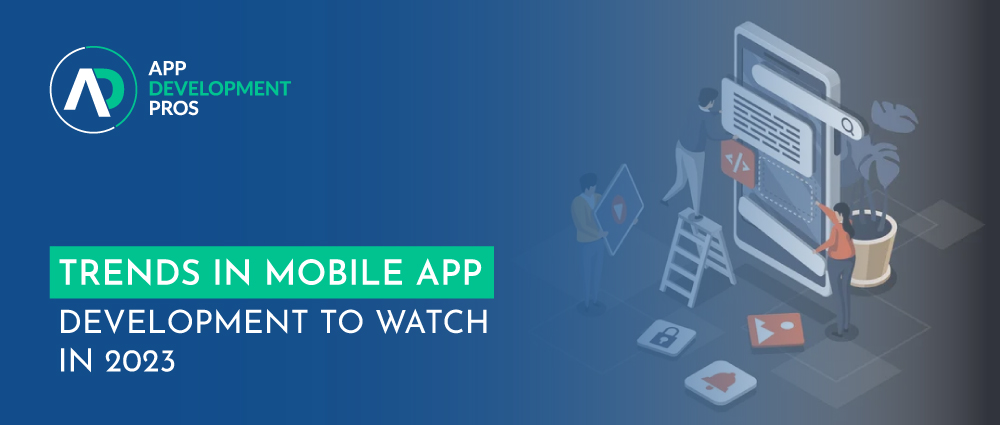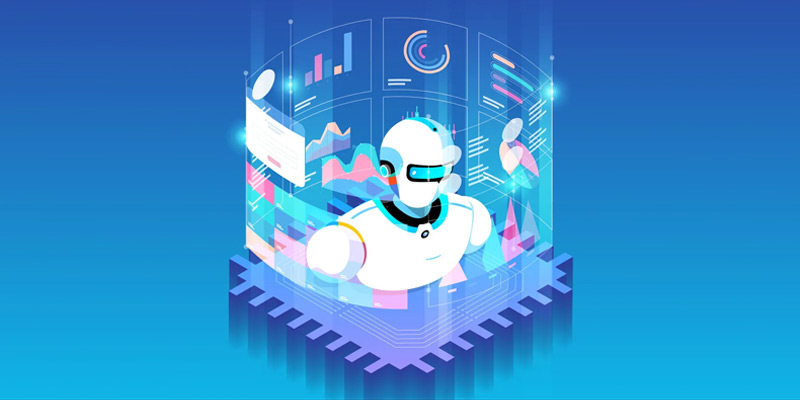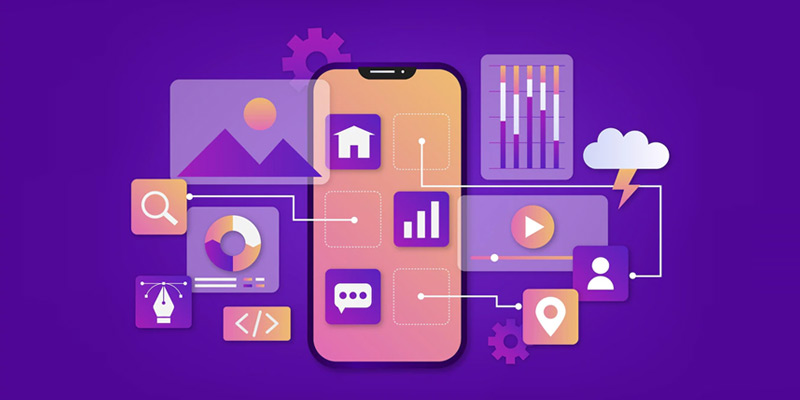Trends in Mobile App Development to Watch In 2023

January 13 , 2023 Posted by Admin
Over 235 million mobile app downloads are anticipated in 2022. Customers are more interested in apps than ever before, with mobile device users spending more than four hours per day on them.
Welcome to the mobile-first era, when mobile software engineers and developers have a tonne of opportunities to improve their apps, which is essential when clients value every interaction.
What is in store for mobile application development in the upcoming year as the market for mobile apps continues to expand quickly in 2023? What developments and possibilities must mobile software engineers and developers be aware of to be competitive?
11 Trends in Mobile App Development Companies
When client expectations and market conditions abruptly shift, knowing the most recent trends in mobile app development will help you reposition.
5G
Users will be able to use a robust mobile network with higher performance speed, quick data transfer, and low latency thanks to 5G networks. There is a 5G tech influence mobile app development. Developers of iOS app development services can benefit from 5G to increase app performance and add new features, including as realistic augmented reality (AR) and virtual reality (VR) experiences, faster live streaming, and greater cloud capabilities.
Cloud and IoT
As businesses work to establish seamless links between smart devices and mobile apps, there is an increasing need for mobile app development companies in the manufacturing, healthcare, and retail sectors.
The cloud and the Internet of Things (IoT) have many advantages, including lower operating costs, higher productivity, and more API connections to other platforms. Manufacturers, for instance, utilize IoT mobile applications to keep an eye on remote work sites or the performance of their equipment.
Machine Learning and AI

Artificial intelligence (AI) and machine learning (ML) will continue to be crucial elements of mobile app development as user expectations for personalized app experiences rise. Real-time data collection and user behavior analytics will enable apps to customize search, chatbot interactions, and app authentication for seamless user journeys. ML can employ analytics to personalize news feeds, provide AI-powered chatbots that are knowledgeable about a customer’s past and communication preferences, and identify fraud, dubious activity, and potential data breaches.
Mobile Business
Mobile commerce (or m-commerce) refers to online transactions made using mobile applications rather than mobile websites. M-commerce is expanding swiftly as more customers use apps. In-app payment options and mobile wallets also make it simpler for consumers to make purchases without leaving the game. To improve the shopping experience, many merchants are creating native applications or doing progressive web app development (PWAs).
Wearables
The use of wearable electronics is still very common, especially in the medical and athletic fields. Users may receive messages and notifications conveniently while on the road thanks to wearables like fitness trackers. It’s not surprising that there is a growing need for mobile apps for wearable technology given the advancements made to newer models and the availability of 5G connectivity. Following this trend will require mobile app developers to concentrate on creating interactive, responsive, and user-friendly apps.
Technology for Beacons
![]()
Beacons were first used in mobile app development in 2013, but their use is growing, especially among retailers, whose income share from the use of beacons is expected to reach over 65% in 2021. Because it transmits data based on a user’s position using Bluetooth low-energy signals, beacon technology is revolutionizing commerce. Consumer advantages include immediate, localized deals and alerts. Businesses are able to create more individualized shopping experiences by using beacons to identify client buying preferences and behaviors.
AR/VR
Mobile apps for gaming, entertainment, travel, and live streaming are changing as a result of advancements in Augmented Reality development or Virtual Reality technologies. Customers desire rich, immersive experiences, and AR/VR technology allows them to do just that. Making experiences that may be accessible and enjoyed on more dated mobile devices is a problem for creators of mobile apps.
Instant apps and PWAs
Progressive web apps (PWAs) are a hit because they fill in the gaps that the bulk of native apps and web pages leave behind. PWAs are a popular choice for both customers and businesses because of advantages, including decreased reliance on internet connections, quicker loading times, automatic upgrades, and shorter time-to-market. The well-known PWA websites are Trivago, Forbes, and Pinterest.
PWAS and Immediate Apps

Customers and organizations alike favor PWAs because of benefits including less reliance on internet connections, quicker loading times, automatic upgrades, and reduced time-to-market. Trivago, Forbes, and Pinterest are some of the well-known PWA websites.
Similar to downloaded apps, instant apps are gaining popularity due to the fact that users can test them out prior to downloading and installing them.
Interdisciplinary Development
Cross-platform development entails making a mobile application that can operate on any iOS or Android application development services platform using a single codebase. You can save time and money by just having to code the app once, and you can reach more users with one app that looks and functions the same way on all devices. Walmart, Instagram, and BMW are among the businesses that have cross-platform applications.
Security When Developing Apps
Mobile devices are susceptible to targeted assaults and security issues. According to a Statista poll of mobile users worldwide, If they felt that a mobile app wasn’t secure, almost 45% of iOS and Android users would stop using it and suggest that their friends do the same.
Customers will lose faith in an app’s brand if there are any indications that their data is at risk; therefore, testing apps while they are still in development is essential for finding vulnerabilities before release. One way to improve app security is to include a biometric login that needs a fingerprint or facial scan to confirm the user before granting device access. Biometrics are personal to the user, remain constant across time, and cannot be faked.
Conclusion
Customers are spending more time on mobile apps because they find it convenient to manage their lives online. Your mobile app development team will have to ensure that apps offer high-performing, seamless user experiences in 2023 as a result of changing client needs. Software developers and engineers can better meet client requests while staying competitive in a market that is continuously evolving by understanding how the newest technological advancements might enhance mobile app development. Do you want hybrid app development? Contact with App Development Pros.
Services

We at App Development Pros, a renowned mobile app development company, are like superheroes of the smartphone app world! We provide digital opportunities in the mobile app design form and help you turn fantastic ideas into powerful mobile apps for your business needs. Our top-notch app development services build the perfect mobile applications for your needs by working closely with you, making us one of the USA's best mobile app development companies.
2025 (c) App Development Pros - Privacy Policy - All Rights Reserved




































Leave a Reply